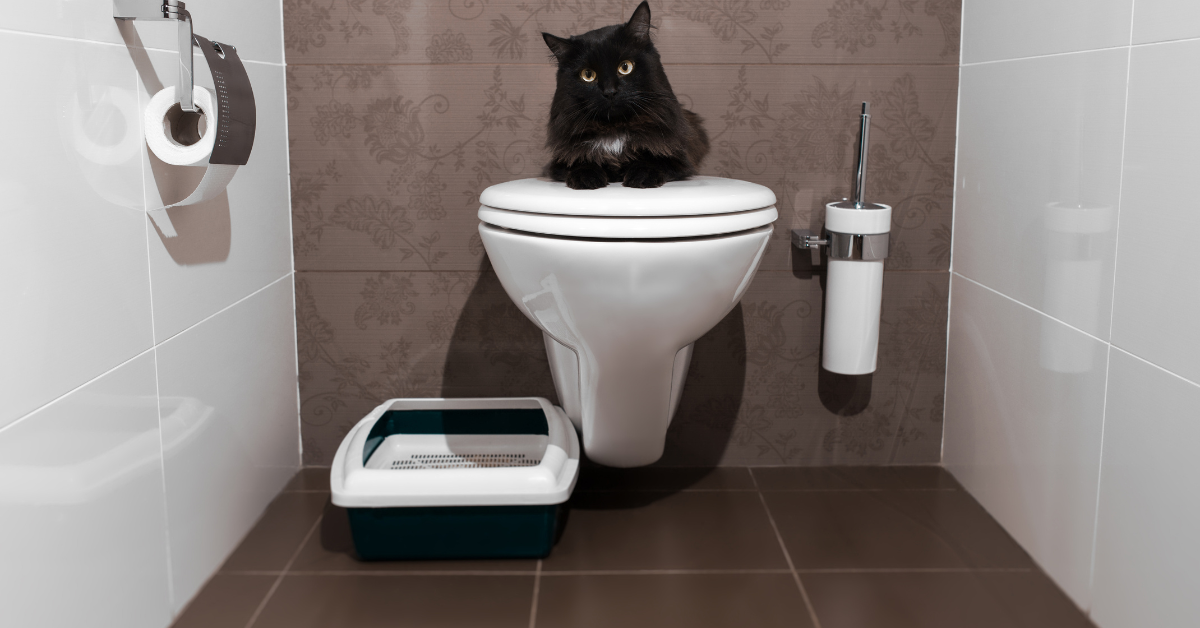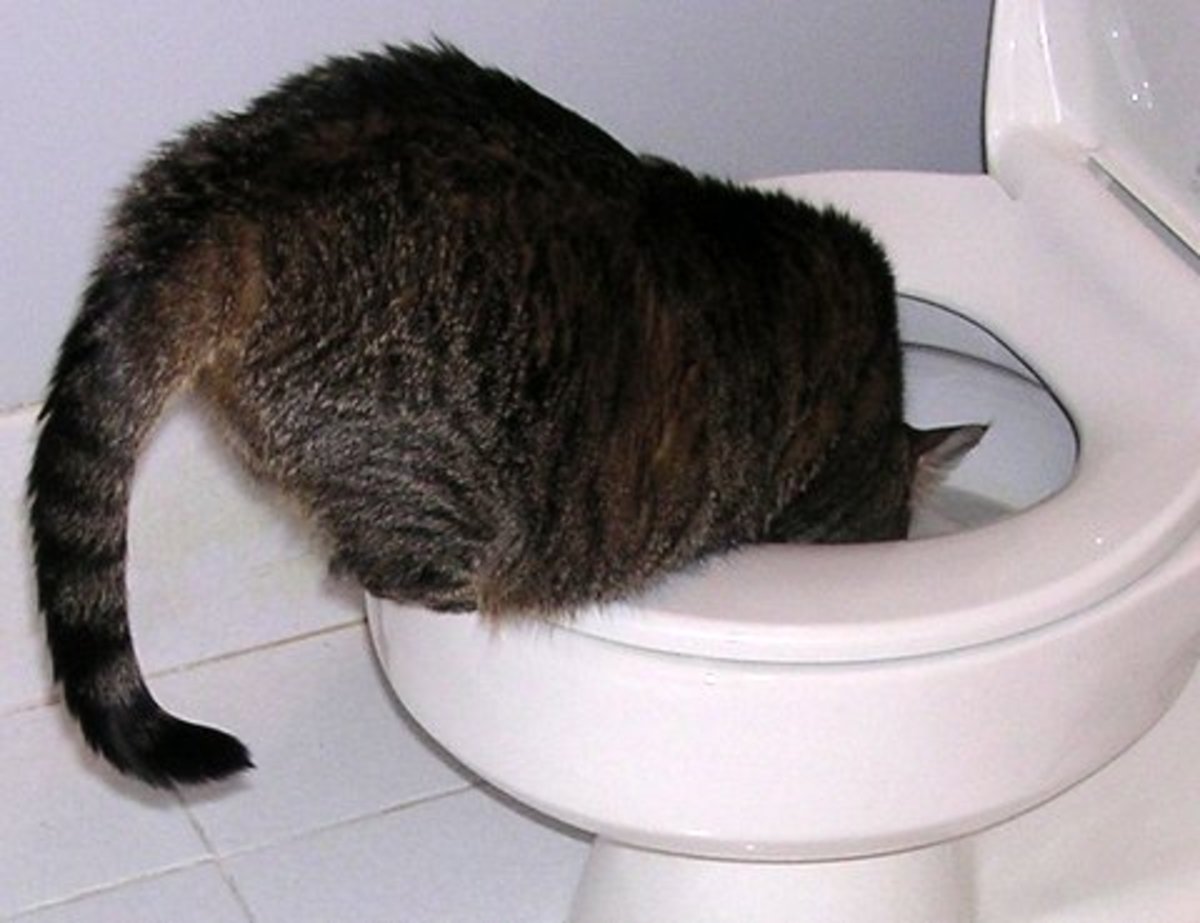Just how do you actually feel in regards to Can You Flush Cat Poo or Litter Down the Toilet??

Introduction
As feline owners, it's vital to bear in mind how we dispose of our feline close friends' waste. While it might seem hassle-free to flush cat poop down the bathroom, this practice can have detrimental effects for both the atmosphere and human health.
Alternatives to Flushing
The good news is, there are much safer and more accountable ways to take care of feline poop. Take into consideration the complying with alternatives:
1. Scoop and Dispose in Trash
One of the most typical approach of throwing away cat poop is to scoop it right into a biodegradable bag and toss it in the trash. Make sure to make use of a devoted clutter scoop and deal with the waste without delay.
2. Use Biodegradable Litter
Select biodegradable feline litter made from materials such as corn or wheat. These clutters are environmentally friendly and can be safely disposed of in the garbage.
3. Bury in the Yard
If you have a yard, think about burying pet cat waste in a marked area far from veggie gardens and water resources. Make sure to dig deep enough to stop contamination of groundwater.
4. Set Up a Pet Waste Disposal System
Purchase an animal garbage disposal system particularly designed for pet cat waste. These systems utilize enzymes to break down the waste, reducing smell and environmental influence.
Health and wellness Risks
Along with environmental concerns, flushing feline waste can also posture health and wellness risks to human beings. Cat feces might consist of Toxoplasma gondii, a parasite that can create toxoplasmosis-- a potentially extreme health problem, especially for expectant ladies and people with weakened body immune systems.
Environmental Impact
Purging feline poop presents damaging pathogens and bloodsuckers right into the water supply, presenting a significant danger to aquatic environments. These contaminants can adversely impact aquatic life and concession water quality.
Verdict
Responsible pet dog ownership prolongs past offering food and sanctuary-- it additionally involves appropriate waste monitoring. By refraining from flushing feline poop down the commode and choosing alternate disposal approaches, we can minimize our environmental impact and shield human health and wellness.
Why Can’t I Flush Cat Poop?
It Spreads a Parasite
Cats are frequently infected with a parasite called toxoplasma gondii. The parasite causes an infection called toxoplasmosis. It is usually harmless to cats. The parasite only uses cat poop as a host for its eggs. Otherwise, the cat’s immune system usually keeps the infection at low enough levels to maintain its own health. But it does not stop the develop of eggs. These eggs are tiny and surprisingly tough. They may survive for a year before they begin to grow. But that’s the problem.
Our wastewater system is not designed to deal with toxoplasmosis eggs. Instead, most eggs will flush from your toilet into sewers and wastewater management plants. After the sewage is treated for many other harmful things in it, it is typically released into local rivers, lakes, or oceans. Here, the toxoplasmosis eggs can find new hosts, including starfish, crabs, otters, and many other wildlife. For many, this is a significant risk to their health. Toxoplasmosis can also end up infecting water sources that are important for agriculture, which means our deer, pigs, and sheep can get infected too.
Is There Risk to Humans?
There can be a risk to human life from flushing cat poop down the toilet. If you do so, the parasites from your cat’s poop can end up in shellfish, game animals, or livestock. If this meat is then served raw or undercooked, the people who eat it can get sick.
In fact, according to the CDC, 40 million people in the United States are infected with toxoplasma gondii. They get it from exposure to infected seafood, or from some kind of cat poop contamination, like drinking from a stream that is contaminated or touching anything that has come into contact with cat poop. That includes just cleaning a cat litter box.
Most people who get infected with these parasites will not develop any symptoms. However, for pregnant women or for those with compromised immune systems, the parasite can cause severe health problems.
How to Handle Cat Poop
The best way to handle cat poop is actually to clean the box more often. The eggs that the parasite sheds will not become active until one to five days after the cat poops. That means that if you clean daily, you’re much less likely to come into direct contact with infectious eggs.
That said, always dispose of cat poop in the garbage and not down the toilet. Wash your hands before and after you clean the litter box, and bring the bag of poop right outside to your garbage bins.
https://trenchlesssolutionsusa.com/why-cant-i-flush-cat-poop/

As a keen reader about How to Dispose of Cat Poop and Litter Without Plastic Bags, I thought sharing that segment was worthwhile. Don't hesitate to set aside a second to share this blog entry if you enjoyed it. I praise you for your time. Don't hesitate to check up our blog back soon.
Apply Now
Comments on “Reasons You Must Never Flush Cat Poop Down Your Toilet - Critical Information”